




Managing Editor
Consultant Editors
Sarath Shyam
April 2023 Vol - 1 Issue - 2 Americas

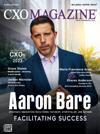


Dr. John Andrews
Emma James
Sabrina Samson
Naomi Wilson
Andrew Scott
Kwith Alexander
Editorial Enquiry: admin@cxoomagazine.com
Art & Design
Charlie Jameson
Branding & Marketing Partnership

16192 Coastal Highway, Lewes, DE 19958, USA
Europe
27, Old Gloucester Street, London, WC1N 3AX, UK
Middle East & Africa
P.O. Box 48299, Dubai Silicon Oasis, Dubai, UAE
Free Subscription
Jennifer Anderson
Monica Davis
Rachel Roy Anna Elza
Sales Enquiry: admin@cxoomagazine.com
Louis Bernard Shirley David www.cxomagazine.com
Asia-Pacific Ramanashree Arcade, 18 MG Road, Bangalore – 560001, India
CXO Magazine is a digital magazine published by Connecta Innovation Private Limited. All rights reserved. The opinions expressed in the content and pictures provided are those of the authors. They do not purport to reflect the opinions or views of the Connecta Innovation Private Limited or any of its members and we do not assume any responsibility. The publisher does not assume any responsibility for the advertisements, its content, pictures, and all representation of warranties made in such advertisements are those of the advertisers and not of the publisher. CXO Magazine is a Free Subscription digital magazine strictly not for sale and has to be strictly for internal private use only. Publisher does not assume any responsibility arising out of anyone printing copy of this digital magazine in any format and in any country and all matters related to that.
In today's business world, innovation is critical for success and growth. Many organizations seek strategic innovation facilitators to help them drive innovation and stay competitive in their industry. One of the essential roles of these strategic innovation facilitators is to help organizations develop a culture of innovation. This involves creating an environment where employees are encouraged to think outside the box and develop creative solutions to business challenges. By fostering a culture of innovation, companies can unlock the potential of their workforce and drive innovation across all areas of the business.
To give more insights into the role of strategic innovation facilitators, we have featured Aaron Bare on the cover. He is a leading strategic facilitator (IAF Endorsed Facilitator - top 1%), futurist, storyteller, and author of a Wall Street Journal, USA Today, and #1 Amazon Bestselling book, “Exponential Theory, the Power of Thinking Big.” Aaron’s career has made him the sage on the stage and the guide on the side to some of the top exponential thinkers. He is a results-focused conscious leader that understands how to create a high-performing organization, deliver a message to the masses, and cultivate trust to solve any issue, in any room, anywhere, anytime.
This issue also features stories of inspiring CXOs, including Grace Staten (Vice President - Marketing, Coastal Wealth), Jordan Meinster (CEO & Founder, PickUp USA Fitness), Maria Francesca Aceti (Chief Executive Officer, Deltha Pharma), and Sharon Anderson (Founder & CEO, KCG Consulting Services). Insights and opinions from eminent industry leaders like Andeed Ma (President, Risk, and Insurance Management Association of Singapore), Andrea Zanon (CoFounder, Confidente), Dr. Anthony Hamlet (President & CEO, CSI Strategies LLC, University Professor & Educational Leadership, Change, & Transformation Consultant) and Nicolas Babin (President, Babin Business Consulting) to this magazine a comprehensive leadership guide.
Enjoy Reading.
Sarath Shyam
STRATEGIC INNOVATION FACILITATOR, FUTURIST, STORYTELLER, AND AUTHOR

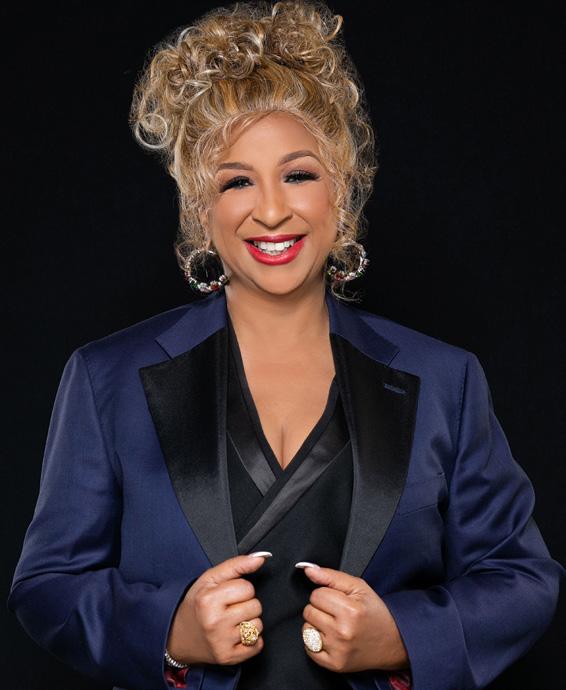
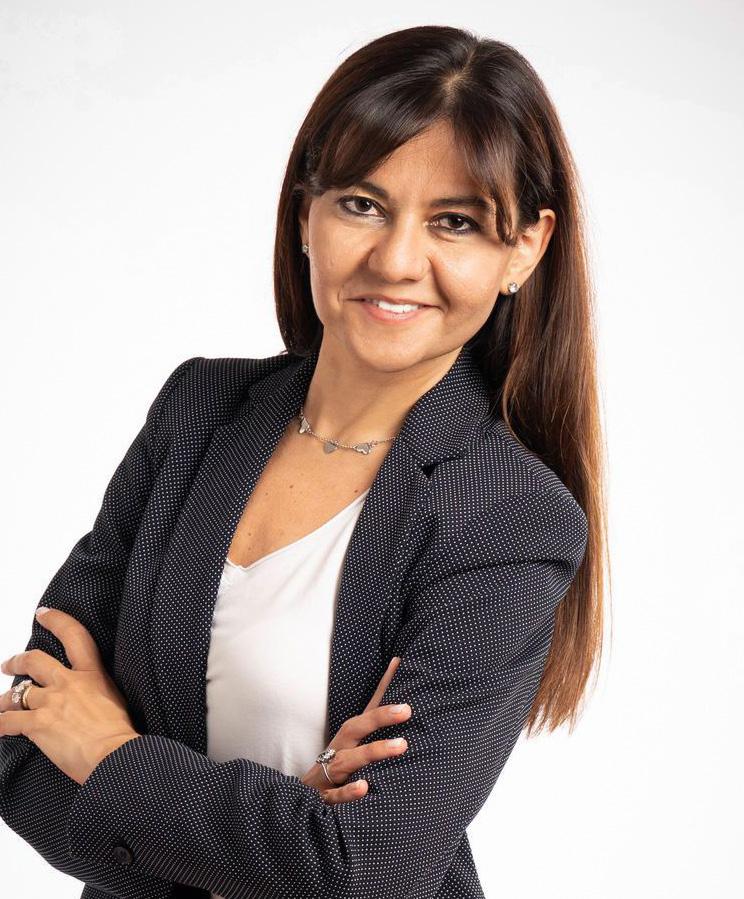

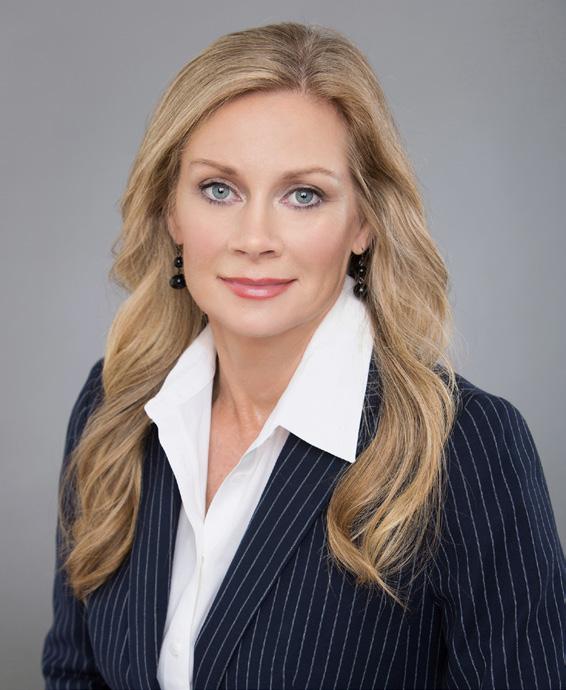
Cultivating Student Outcomes Focused Learning Cultures In Schools: A Guide for
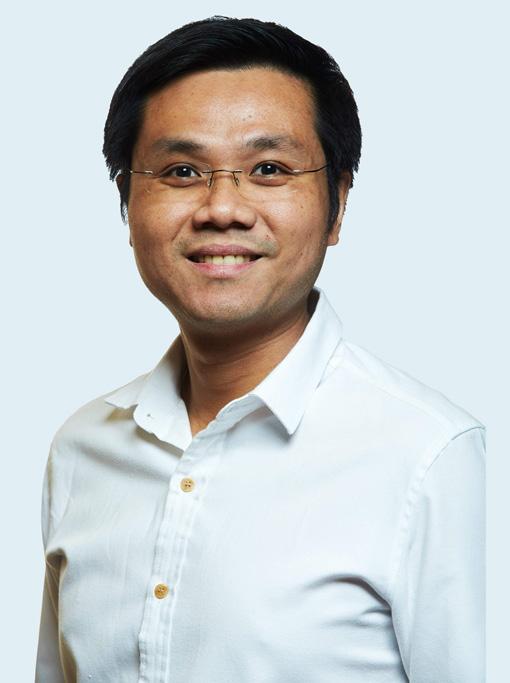



How is Robert Bruski Creating a Revolution in VR Franchising?


Aaron Bare is a leading strategic facilitator (IAF Endorsed Facilitator - top 1%), futurist, storyteller, and author of a Wall Street Journal, USA Today, and #1 Amazon Bestselling book, “Exponential Theory, the Power of Thinking Big.” Aaron’s career has made him the sage on the stage and the guide on the side to some of the top exponential thinkers. He is a results-focused conscious leader that understands how to create a high-performing organization, deliver a message to the masses, and cultivate trust to solve any issue, in any room, anywhere, anytime.
Through his facilitation work, Aaron has generated over $4 billion in documented results for his corporate clients and generational impact with his community facilitation. Aaron has facilitated corporate strategy and innovation at NASA, Stanford, MIT Media Lab, Daimler, Coca-Cola, Google, Facebook, Adobe, Amazon, and Belfius Bank. He works directly in the Board Room and throughout the Executive ranks, putting on Innovation Workshops, Leadership Retreats, and Strategic Planning Sessions.
Aaron co-created the Bridge Forum in his community facilitation initiatives, a national community-focused forum bridging the gap between police and the communities they serve. Through this, Aaron has helped facilitate the conversation to help both sides create new meaning and build a metaphorical bridge and process to communicate. Beyond the Bridge Forum, Aaron continues to impact the world with a massive transformative purpose of creating one million exponential leaders. To do this, Aaron has also led facilitations for Oxford Leadership, Hyper Island, WDHB, Wizard Academy, Flow Research Collective, Conscious Capitalism, and Kaos Pilot.
In addition to his recognition as one of the top facilitators in the world, Aaron is a serial entrepreneur and company builder. He's launched and sold 12 companies, three scalable educational programs (each impacting over one million people), three non-profits, and three accelerators. He is also a venture partner and scout at a venture capital firm and a venture studio. Aaron started his career as a strategist turned full-stack developer at Accenture, where he fostered his standards of excellence and deep strategic and technical knowledge.
Aaron Bare holds an MBA in Global Management from Thunderbird School of Global Management, an MA in International Studies from Indiana University, and a BS (Honors) in Business from Indiana Institute of Technology. He has two kids (Bali + Maverick) who drive him to improve the world, and he makes his home in Scottsdale, Arizona.
In a conversation with CXO Magazine, Aron talks about his career, his role as a strategic facilitator, his book Exponential Theory: The Power of Thinking Big, and much more.
How has your life experience made you the leader you are today? Tell us about your career so far.
I'm Aaron Bare, the author of the Wall Street Journal and USA Today Bestseller Exponential Theory and the creator of the XMBA: The Last Course You'll Ever Need to Take. My passion is to help the world think bigger with my book

Exponential Theory and the XMBA. I help leaders create eXponential Mindsets Beliefs and Attitudes. We have created a program combining modern neuroscience and ancient philosophy. We're currently enrolling in the XMBA.
Some of my work to make the world thinks bigger has been through facilitating strategic discussions on innovation and leadership at
some of the biggest companies in the world, including Coca-Cola, Daimler, and Belfius Bank, the national bank of Belgium.
With this experience, I wrote my book, Exponential Theory: The Power of Thinking Big. This book outlines how we can all think and grow exponentially on a personal, professional, and organizational level. The XMBA is built to
grow our mindsets, think bigger, and transform ourselves and the world.
I've always been fascinated with building things, and when I got older, I fell in love with the computer's power and the ability to make stuff digitally. At Accenture, I was able to code the first website for Culligan and build the CRM for Walgreens. From there, I spent most of my

Some of my work to make the world thinks bigger has been through facilitating strategic discussions on innovation and leadership at some of the biggest companies in the world, including Coca-Cola, Daimler, and Belfius Bank, the national bank of Belgium
career working on digital projects and launching exponential digital companies.
In today’s market scenarios, what is exactly the role of a strategic facilitator? How do you help organizations to be successful and future-proof?

While I became a serial entrepreneur after I left Accenture, my passion for helping others think bigger led to my present as a facilitator and a storyteller. Some of the companies I have facilitated strategic innovation discussions. Ultimately, I apply the principles behind Exponential Theory and the XMBA to help their teams find solutions to the most complex problems facing their businesses. I've built

From easing leadership to making multi-billion-dollar decisions to helping CEOs overcome childhood trauma, I do whatever it takes to ensure a better future for all stakeholders
XMBA to be a scalable learning management platform for onboarding and for high-performance leadership for companies from startups to Global 100 companies.
As a change agent, what challenges do you face while working with the most powerful people on the planet?

I'm grateful when I sit back and reflect on some of the people asking me to help them and what
they want me to help them with. My work is very meaningful and purposeful. I take my direct contact with CEOs of global 100 companies to some of the most exponential startups very seriously. Mostly, I help those paralyzed by complexity understand the unintended consequences behind every decision or indecision.
From easing leadership to making multibillion-dollar decisions to helping CEOs overcome childhood trauma, I do whatever it takes to ensure
a better future for all stakeholders. This is what being a Change Agent is all about - stepping into tough conversations.
How do you convince business leaders to make the most difficult, confounding, and courageous decisions they need to change for the better?
The great part about my role is that leaders have the answer to their own problems; they need
somebody outside to ask the right questions to make them step back, so they can see the solutions for themselves. I help them do that with a few of my mental models in Exponential Theory, like the Rhodium Rule and Mars Shots. "Mars Shots" encourages leaders to set unfathomable goals. The Rhodium Rule argues that future leaders must consider the entire ecosystem every time they make a decision. In the future, it’s not enough for just

I am living a self-fulfilling prophecy creating exponential leaders whenever I facilitate, speak, coach, advise, or get someone to read my book. I'm in a good place to make an exponential impact
shareholders to win. Leaders in the future will have to consider all stakeholders – employees, suppliers, consumers, and the planet to win.

What differentiates facilitation from training? Take us through the process of customizing facilitation programs for each client.
Facilitation is what improv is to comedy. It's taking what the room gives you and crafting a lesson through the inputs and stories of everyone
in the room. It's asking the right questions and bringing the message from the group, not lecturing or presenting a PowerPoint.
How do you structure the contents of a coaching program? What methodologies do you employ as a mentor?
Our XMBA is facilitated. We have some lessons to share knowledge, yet we bring the group together to learn through a facilitated conversation. We assign everyone mentors and
My book took 15 years of research, over 500 companies, 100 countries, all 50 States, and 1,200 pages of notes to start and then 100's of iterations to refine the message to something I wanted to share
buddies to create unique ways to engage with new material and test your wisdom through continual practice and teaching others.
Describe your most successful coaching/ facilitating initiative. How do you know if your facilitation was successful?
I know that I resonate with somebody when I meet them, and they immediately turn around and plug me into the most important parts of their network. I am living a self-fulfilling prophecy creating exponential leaders whenever I facilitate, speak,

coach, advise, or get someone to read my book. I'm in a good place to make an exponential impact.
What inspired you to write the book, “Exponential Theory”?
I’ve been working on Exponential Theory: The Power of Thinking Big for over fifteen years! I've always been a storyteller, and it was natural for me to want to create something that would help others think bigger. I'm on a mission to impact as many people as possible with the stories, mindsets,

beliefs, and attitudes outlined in the book. The XMBA Massive Transformative Purpose is to help 1,000,000 think exponentially. #1mxl – 1 million exponential leaders.
Can you share something about the book that isn’t in the blurb? What do you hope your readers take away from the book, Exponential Theory?
Thrivability is a term I coined to describe a new mental model for building a future in which we

At X3 Capital, we believe that technology can solve some of the world's biggest challenges, and we invest in companies that positively impact people and the planet
all thrive. The idea behind thrivability is that we must go beyond survivability, maintainability, and sustainability, and strive to create a thriving world, not just survive. Thriving is helping everyone around you find their passion and purpose. It’s making every room you walk into better and growing the mindset. The leaders of my organization's only goal is to help people thrive, people first. Second, no impact on the planet, zero. We must think bigger and always help others think bigger about their purpose.
Thrivability is about creating an abundant, resilient, and regenerative future. It's about designing systems, products, and services that meet our basic needs and support our growth, wellbeing, and happiness. Thrivability is about creating a world where everyone has the opportunity to flourish and reach their full potential.
Leaders today must embrace the concept of thrivability and work towards creating a future that is not just sustainable but truly thriving. This requires a shift in mindset from focusing on minimizing harm to maximizing positive impact.
By embracing thrivability, leaders can create a better future for everyone and ensure that the world we build is abundant, resilient, anti-fragile, and regenerative.
What is the most challenging part about writing for you? What is your work schedule like when you are writing? Writing is a natural way to work out my thoughts, continually refining my point of view and simplifying complex things. My book took 15 years of research, over 500 companies, 100 countries, all 50 States, and 1,200 pages of notes to start and then 100's of iterations to refine the message to something I wanted to share. I'm proud of the output and clarity of my thinking, yet once published, I already see how to say it even better. Continuous iteration is part of learning today, and writing is no different. With ChatGPT, knowledge is abundant, yet refining that within your mindset, beliefs, attitudes, and experiences will bring real wisdom to the world.
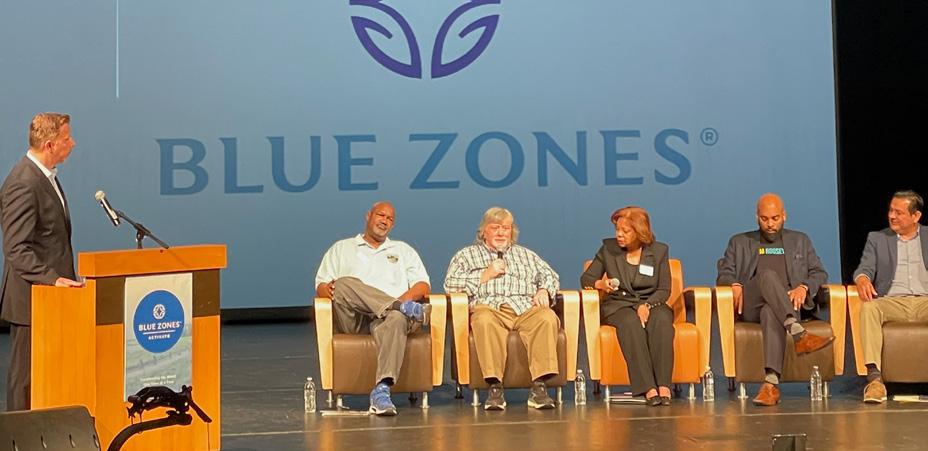
The XMBA is my magnum opus and stands for eXponential Mindset, Beliefs, and Attitudes. It is a talent and leadership accelerator that I created to help leaders reach their full potential. The XMBA is a course, habitual framework, and learning community that gives the exponential mindset and provides them with the tools and techniques they need to succeed in today's rapidly changing world.
The XMBA is designed to help leaders develop the skills and attitudes to embrace change, take calculated risks, and think big. It covers topics such as exponential thinking, innovation, and leadership and provides participants with a comprehensive understanding of applying these concepts in their personal and professional lives.
I've also started X3 Capital. X3 Capital is a venture studio that invests in sustainable exponential AI and web3 solutions. As the Managing Director, I lead the investment strategy and work closely with our portfolio companies to help them achieve their full potential. At X3 Capital, we believe that technology can solve some of the world's biggest challenges, and we invest in companies that positively impact people and the planet.
The XMBA is a key asset to X3 Capital as we source talent and leaders for ventures in our portfolio. It also works inside enterprises, where it can be used to help entire teams, such as a sales team, reach their full potential. Additionally, the XMBA is available to individuals who can use it to develop their leadership skills and achieve their personal and professional goals.
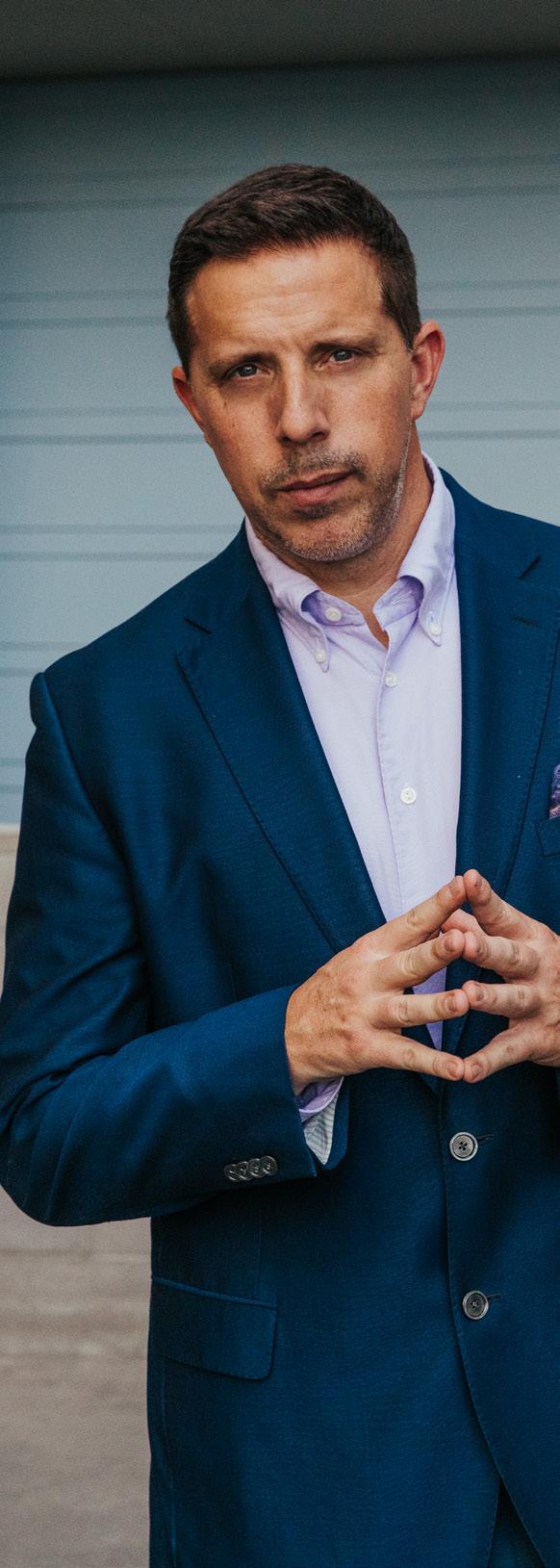
Tell us a little bit about your education and life as a student. What lessons have you learned in your childhood/college days that helped you become the leader you are today?
I continually put myself outside my comfort zone. Traveling is a big part of thinking bigger for me. Seeing the world from others' point of view provides depth and wisdom you just cannot read. As a voracious reader, it's great when others share emotions and feelings they experience to start to paint new pictures of knowledge and learning. All of this is beyond the comfort and fear zones and into learning and growth zones.
What does your typical working day look like? How do you handle pressure, stay calm all day, and unplug from work?
I'd describe myself as an educated minimalist. Every day I choose to be the hero of my own journey. I'm deliberate with how I use my time. A day in my life consists of eating a healthy breakfast with friends and colleagues after 4 hours of deep work, religiously working out at F45, and then recovering in a cold plunge and then the sauna on the roof of my building. I then have another 4-hours of deep work before hosting a dinner party or attending a charity event. I'm a minimalist just by how I typically leave my home – with just
I am writing a second book around the XMBA and how people can practice Exponential Theory. The goal is to help 1 million people get to an exponential mindset
my iPhone. I surround myself with minimal distractions to find flow in everything I set my mind to. Through these educated minimalist character traits, the simplicity focuses me on the long-term, and I complete more every day by noon than most accomplish in a week.
As a technologist, futurist and bestselling author, what change do you want to bring into people's lives to help their families and communities?
I am writing a second book around the XMBA and how people can practice Exponential Theory. The goal is to help 1 million people get to an exponential mindset.
Do you have any thoughts you would like to share about being a leader or advice for individuals looking for a successful life?
The mindset is the one key factor in every successful leader. Helping leaders be in the moment, listen, channel their thoughts, stop overthinking, make decisions, create shared visions, and execute a massive transformative purpose that others can get behind is key to all the successful exponential leaders I have researched.
What projects or goals are you working on or leading currently?
I am leading global digital transformation projects, investing in Web3 and AI Sustainability, and my massive transformative purpose is 1 million exponential leaders. I have a lot to be thankful for, and honored to share my wisdom with those seeking to step into their leadership.
I am leading global digital transformation projects, investing in Web3 and AI Sustainability, and my massive transformative purpose is 1 million exponential leaders

Robert Bruski is the CEO & Co-Founder of Ctrl V VR Franchising. After graduating with a degree in Economics from Wilfrid Laurier University, where he co-founded the school’s premiere business society, “The Link,” Robert spent over a decade working in Canada’s financial investment industry, focusing on buy-side investment management. Working with some of the industry’s leading investment professionals, Robert was exposed to various businesses. He precisely sharpened his skills in determining the difference between a good business and a great business. All of this while dabbling in various entrepreneurial initiatives until he decided to make the leap into starting his own company.
Robert co-founded a company called PipeDream Interactive that developed a piece of cinema eyewear called Invisivision. This company made waves throughout Hollywood before Robert and his business partner co-founded Ctrl V. Ctrl V is North America’s first and the world’s largest virtual reality arcade franchise. He is also the co-founder of Good Company Productions (GCP). GCP is a music production company that puts on concerts, shows, and festivals. It acts as a talent-buying representative and provides musicians with artist management and representation opportunities. This initiative gave Robert a flavour for contributing to the local community. Robert is also a mentor for the Waterloo chapter of Palo Alto based idea-stage accelerator, The Founders Institute, where he contributes his experience and knowledge to helping budding entrepreneurs grind and build out their dreams and ideas.
In a recent interview, the team of CXO Magazine chatted with Mr. Robert Bruski to gain his insights on the current trends emerging in the VR industry, obstacles and hindrances faced by him while running his company, how can new franchisees seek benefits from Ctrl V VR Franchising, and a lot more. Following are the excerpts from the interview.

You have been an active part of the Virtual Reality industry for quite some time. According to you, what are the biggest trends to watch out for in this industry in 2022?
The VR industry has been growing significantly and at an accelerated pace in the last few years. As a result, it can be tricky to truly anticipate what may be next. However, there is a significant case for VR to expand beyond gaming and entertainment. Sure, there has been a lot of effort put into VR entertainment, and several reputable

companies and organizations are putting efforts and resources into expanding their VR horizons. VR will continue to grow into the world of education and training as it has proven to be an innovative, scalable, and cost-effective way to deploy content.
Furthermore, virtual reality is poised to have a large insurgence of content and hardware development in the worlds of sales (like real estate) and medicine (like PTSD therapy and senior care). These industries have been champing at the bit to explode and will continue
to innovate. This, coupled with the natural growth of VR entertainment, will be explosive for adopting this technology.
What lessons and insights have you gained from the COVID-19 experience as an entrepreneur?
COVID-19 has undoubtedly opened many eyes regarding how businesses and the economy can be affected. It goes without saying that building a company that can survive a pandemic (or, at least, have a backup plan) is critical. It may have been the first pandemic in a generation, but who knows if it will be the last one. However, the most insightful experience gained is on
the repercussions of a post-pandemic world. Namely, the economy. Businesses need to be built to survive the adverse effects on the economic stability of a nation and its people. Being recession-proof is just as important, if not more important, than being pandemicproof. Having efficient economies of scale and scope, tight unit-level economics, and a clear plan in case of a disaster are imperative for a business to possess.
As the CEO & Co-Founder of VR Franchising, what challenges do you face? And how do you overcome them?

The job of a CEO is 3-fold. To increase shareholder value/wealth, to plan the future and vision of the
Ctrl V puts a considerable amount of effort and resources (including technologies) into mastering this realm and deploying the strategies efficiently.
The biggest accomplishment that any franchisor would be proud of is creating a franchise system that has happy franchisees in an emerging industry and has survived a pandemic


company, and to build & maintain the culture within the business. These facets come with their own struggles, roadblocks, and hurdles. But it is important to note that every challenge can be overcome by staying sympathetic and empathetic. Business, at its core, is a people game. You may be operating in the technology, entertainment, food & beverage, or a myriad of other industries. But what truly makes the wheels go round are the people behind the company. Being able to connect with, understand, and grow people, is what will help any CEO & Co-founder overcome whatever challenge comes their way. They will have a team that supports their mission and vision and together can move forward.
At Ctrl V VR Franchising, what tools and technologies are you currently using for sales and marketing?
The world is quickly changing from the standpoint of sales and marketing. Being able to utilize the tools of Web 2.0 (specifically social media) is critical. A business needs to understand these tools entirely and be able to deploy them efficiently. Web 3.0 is inbound, and knowing how to deploy the social tools online is becoming par for the course. This is especially the case as Gen Z becomes a more prominent contributor to the consumer economy. They are digital natives and expect a minimum standard of compliance with web tools. Ctrl V puts a considerable amount of effort and resources (including technologies) into mastering this realm and deploying the strategies efficiently.
What type of opportunities does Ctrl V VR Franchising have in store for the new entrepreneurs? What should be their mindset before entering the VR industry?

Ctrl V is expanding across North America (and, if you’re interested… the world!). As a result,
Within the first 1 to 2 years, Ctrl V franchisees are supported immensely. Not only does Ctrl V provide the standard operating manuals, tools, and tricks that most franchisors do, but it doubles down on its franchisees.
the best opportunity for new entrepreneurs is to become business owners through the ownership of their own Ctrl V virtual reality arcade. They can go into business for themselves, doing something fun and impactful, but not by themselves, with a supportive and actively engaged franchisor working alongside them. It is critical to have a mindset of hard work, grit, and moxie. Ctrl V is an emerging brand, so resilience is required. But VR is also a new technology that requires a pioneering mindset amongst all franchisees, business owners, and entrepreneurs.
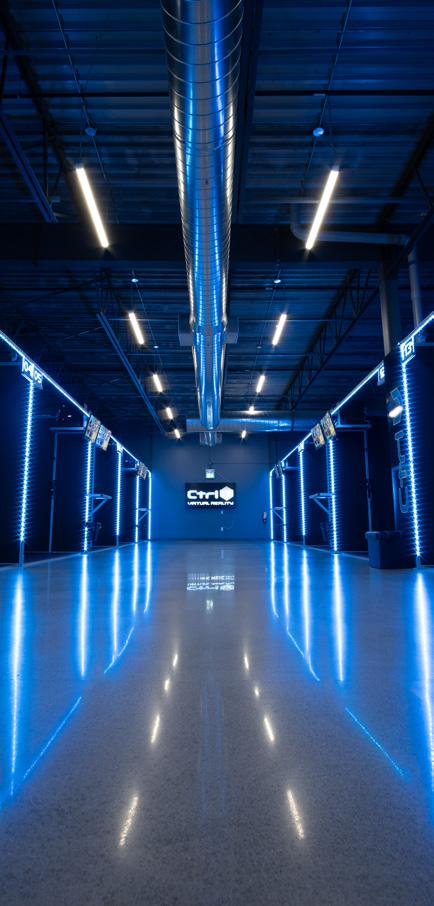
Becoming a first-time franchisee can be difficult. What kind of support do you provide them in their first 12 – 24 months?
Within the first 1 to 2 years, Ctrl V franchisees are supported immensely. Not only does Ctrl V provide the standard operating manuals, tools, and tricks that most franchisors do, but we double down on our franchisees. It starts with an in-depth initial training program, followed by an initial deployment program. It then moves forward with continued active support – an LMS packed with content, peer performance groups, webinars, weekly franchise business coaching, franchise advisory councils, and many more inputs. Ctrl V believes in a congruent franchisorfranchisee relationship. Our prerogative is franchisee happiness and profitability.
Can you name a person who has had a tremendous impact on you as a leader? Maybe someone who has been a mentor to you? Why and how did this person impact your life?
The person who has had the most tremendous impact on myself as well as Ctrl V is Angela
With the adoption of the metaverse by the general public and the growth in virtual reality arcades, VR will be the main gateway for people to enter the metaverse and interact with it
Cote of AC Inc. Angela has been a mentor to our entire team, teaching us what it means to be a great franchisor, support your franchisees, and be a leader to team members and business owners. She has helped us build our business into something that everyone can be proud of and has provided insight into the franchising world that can be rivalled by none. Without her mentorship, leadership, and guidance, Ctrl V would be facing the same fate that too many emerging franchisors and franchisees face. Thank you for all of your guidance and support, Angela.
You have co-founded companies, led numerous teams, and successfully created a mark for yourself in the VR industry. Which one of your accomplishments makes you the proudest to date?
The biggest accomplishment that any franchisor would be proud of is creating a franchise system that has happy franchisees in an emerging industry and has survived a pandemic. Granted, this is many accomplishments rolled into one, but

Altering an environment is the best tool that a leader can navigate. It will create a business culture that fosters fulfillment and joy and migrate away from tentative feelings of happiness and excitement
ultimately this is quite the feat that should leave any business owner proud.
What is the forecast for VR Market in the next 5 years?
VR is poised to continue its growth and expansion into several different verticals over the next few decades. Within the near and current future, a considerable amount of effort is being put into developing the metaverse and VR’s role in it. With the adoption of the metaverse by the general public and the growth in virtual reality arcades, VR will be the main gateway for people to enter the metaverse and interact with it. A recent Gartner report indicated that by 2026, a quarter of the population will be accessing the metaverse at least once a day.
As we know it, VR is the way to do so. The future is inevitable.
Lastly, what is the best advice you would give to a learning leader?
A leader has only one way that they can impact a company. And that is through the development of an environment conducive to its team. Altering an environment is the best tool that a leader can navigate. It will create a business culture that fosters fulfillment and joy and migrate away from tentative feelings of happiness and excitement. This will allow people to follow the leader into whatever battle is necessary. Don’t be a manager. A manager can command authority, but that doesn’t mean people will follow them. Leaders need people to follow them to achieve their goals.
 Staten Vice President - Marketing, Coastal Wealth
Staten Vice President - Marketing, Coastal Wealth
 Grace
Grace
In today's modern era, the pool of leadership opportunities and career advancements for the female workforce within the financial services domain is relatively shallow. In an industry dominated by men for decades, females have, then and even now, had to work almost twice as hard to try to eliminate the gender gap and level the field. Grace Staten is among the top female leadership ranks and making considerable headway in this sector. As Vice President, she heads the marketing department at Coastal Wealth. Grace commenced her journey as a financial professional's assistant and diligently worked her way up the corporate ladder. Having just a minuscule portion of female role models in this industry, she is
driven by her desire to change this scenario by volunteering to mentor young women and girls. Her passion for helping and teaching are some of her strong suits aiding her during this endeavor. Believing to have matured into a self-aware, hardworking, and compassionate woman, she reveals, "I have intentionally made myself uncomfortable professionally by taking leadership positions in every organization in which I am a member. I have learned from my mistakes and look at them as opportunities rather than failures. I now share these lessons and teach what I know with my team and with those I mentor. Because of my own struggles, I firmly believe in diversity and inclusion in the workplace and assist with recruiting and promoting women and minorities."
Coastal Wealth is committed to helping its clients secure their futures and protect those they love. The company was established to be the most innovative, collaborative, and trusted financial solutions firm in the nation. Coastal Wealth's mission is to navigate opportunities and redefine what is possible

Coastal Wealth is one of the leading general agencies of Massachusetts Mutual Life Insurance Company (MassMutual), which has increased production, revenue, and financial professionals consistently. Coastal Wealth is committed to helping its clients secure their futures and protect those they love. The company was established to be the
most innovative, collaborative, and trusted financial solutions firm in the nation. Coastal Wealth's mission is to navigate opportunities and redefine what is possible. "At Coastal Wealth, our financial professionals are champions of the idea that we are better through the support of one another. We value our people for who they are, how they think, and what they bring to the table. This makes us stronger, innovative, and more cohesive," elucidates Grace.
As the leader of the marketing department, Grace and her team help the firm and its external presence as well as the producers’ marketing efforts within the firm. She has encountered and overcome several challenges that most leaders of today face: guiding change within the team, inspiring others, and setting achievable goals. She has never met a challenge that she has not conquered. "I have been able to discover the interests of our members and capitalize on their strengths to increase their potential. Setting goals and regular reviews have provided the required feedback and direction to meet their objectives,” reveals Grace on her examination of how she nurtures and leads the workforce.
Her typical working days include several virtual meetings with financial professionals, outside vendors, and her in-house team. She oversees and manages all that goes on in the department and focuses on the execution, communication, and accountability of her team. Grace adds, "Understanding my responsibilities, deadlines, and the overall
picture helps me drive revenue, become a champion of the financial professionals' marketing needs, and even a chief storyteller as a way of nurturing the creative side of Coastal Wealth." Grace leverages her in-depth expertise and zeal to efficiently and seamlessly manages the multitude of organizational responsibilities and her team
Throughout her career, Grace has been recognized as one of the influential female leaders in every aspect and has received several accolades for the same. She was elected as a Woman of Influence in the northeast area of Florida. In conjunction with this, she is the incoming national PresidentElect of the Accounting and Financial Women's Alliance and sits on the Board of Directors for the Gateway Council of Girl Scouts. Furthermore, she holds a leadership position with the local chapter of the American Business Women's Association. "Each of these titles has allowed me to identify how far I have come and where I would like to go. In the overall picture, my goal is to support and mentor women to build confidence in themselves and overcome selfdoubt in pursuing their dreams.
Despite encountering a broad spectrum of challenges, Grace has emerged victorious. One such challenge was when the Coronavirus pandemic struck. While steering the ship along its chartered course, Coastal Wealth used the pandemic as an opportunity for a change instead of viewing it as just a crisis. Prior to the pandemic, her organization and its employees are used to working a 9 to 5 shift while juggling
a work-life balance. As Coastal Wealth shifted to embracing the work from home concept, this newfound flexibility and freedom led to an upswing in productivity.
The Marketing Team is spread throughout Florida, so meeting virtually was already a standard. Coastal Wealth, with Grace, created a new kind of culture by implementing the Coastal Community Calendar with virtual social events so that all of the members and their families could participate. Grace says, "Our stellar IT department ensured all members were equipped with the right computers and tools to succeed. We use new programs and technology to foster growth in today's highly competitive world and teach to
think like innovators with systems and processes. We carefully balance what has made us successful in the past while investing in our future."
Now, as the world attempts to achieve some sort of normalcy in all aspects of their lives, Coastal Wealth and Grace have also embraced the post-pandemic world. The company now offers additional extras such as flextime in the workweek, individuals are permitted to work at times convenient to their schedules with a 4-day work week and unlimited PTO. Grace signs off, “We have found this has made the workforce appreciative and able to work during the times they would have otherwise been commuting to the office.”
Grace leverages her in-depth expertise and zeal to efficiently and seamlessly manages the multitude of organizational responsibilities and her team



Andeed Ma is an AI cloud business and risk management leader for more than 15 years. He has worked for major technology companies such as ServiceNow, Ivanti, ByteDance and CyberArk. He is currently leading a non-profit enterprise risk management association known as RIMAS (Risk and Insurance Management Association of Singapore) as their President. He lectures, speaks, and mentors at the Singapore University of Social Sciences (SUSS) on Hyperautomation, Introduction to AI; and at the Singapore Management University (SMU) on the Essential of Cloud Computing, Regulatory Technology (RegTech) and Sustainable AI. He is the Co-author of “AI for Humanity: Building A Sustainable AI for the Future” (ISBN: 9781394180301), to be published by Wiley.
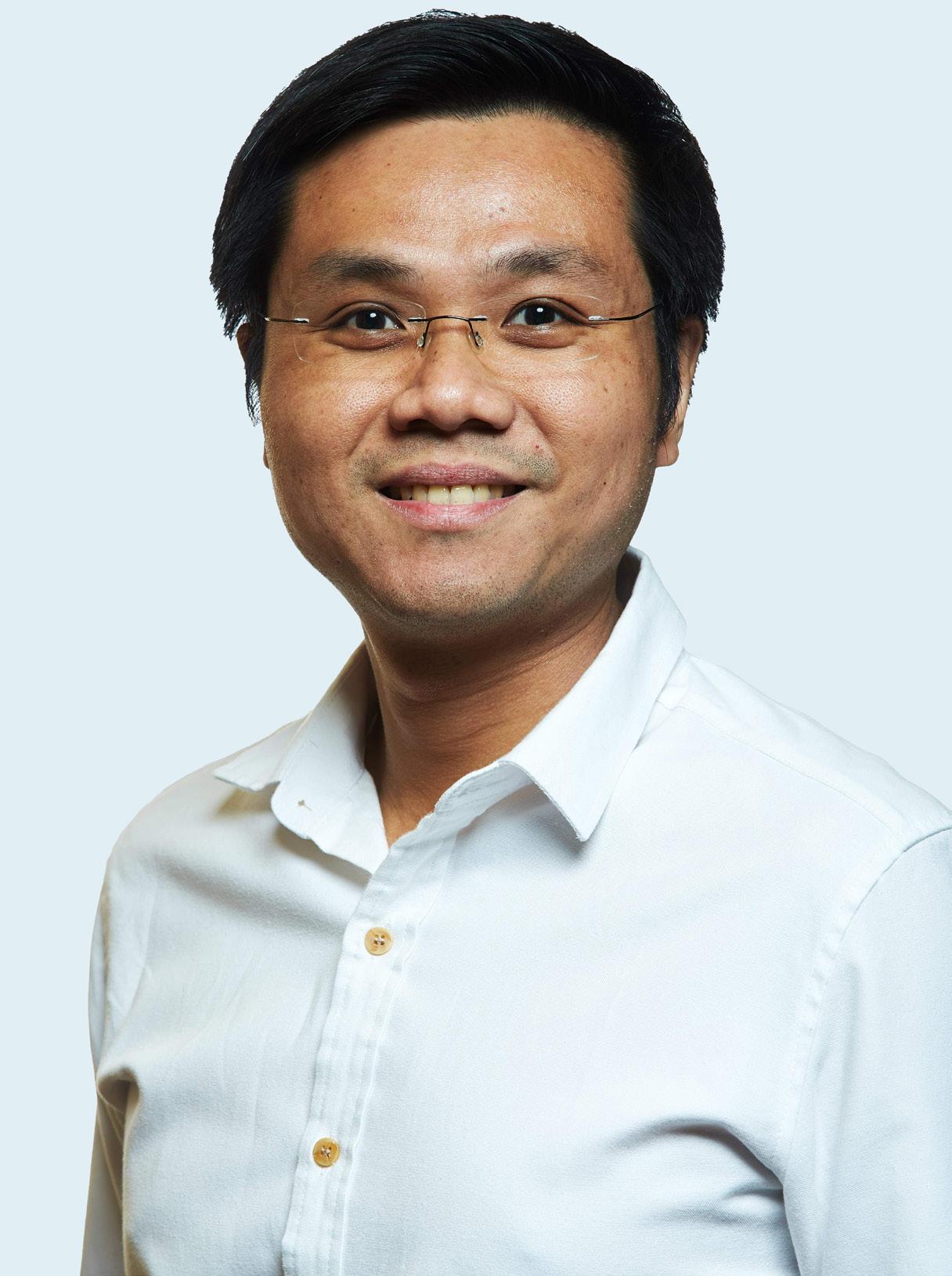 Andeed Ma
Andeed Ma
Web 3.0, the next generation of the internet, is set to revolutionize the way we interact, transact and access information. With decentralized systems, blockchain technology and new economic models, Web 3.0 aims to bring a more open, secure, and transparent web experience. However, this new era of the internet also brings new risks and challenges, making it crucial to have a solid risk management framework in place.
One of the main risks in Web 3.0 is related to security. The decentralization of systems means that there is no central authority to manage and secure data, making it more vulnerable to hacking, data breaches and other malicious attacks. Additionally, smart contracts, which are self-executing codes that enforce the terms of a contract, can be vulnerable to bugs and exploits, potentially leading to unintended consequences and financial losses.
Another risk in Web 3.0 is related to the economic models, which are often based on decentralized networks of peers and incentivized systems. This new economic landscape brings new opportunities and challenges, such as the risk of market manipulation, liquidity issues and the risk of not being able to effectively enforce agreements.
Finally, there is also a risk associated with regulation, as the legal framework for Web 3.0 is still developing and evolving. This lack of clarity on the regulatory front can lead to uncertainty and potential legal challenges.
To effectively manage risks in Web 3.0, it is essential to have a robust risk management framework in place. The following are some key components of a risk management framework for Web 3.0:
1. Security: It is crucial to ensure that the systems and infrastructure used in Web 3.0 are secure, especially given the decentralized nature of the technology. This can be achieved through the use of secure coding practices, secure storage of private keys, and the use of robust encryption algorithms.
This new economic landscape brings new opportunities and challenges, such as the risk of market manipulation, liquidity issues and the risk of not being able to effectively enforce agreements
2. Economic Models: To manage the risks associated with the economic models of Web 3.0, it is important to have a deep understanding of the underlying mechanisms and incentives. This includes understanding the mechanisms for price discovery, the supply and demand dynamics, and the potential for market manipulation.
3. Regulation: Given the lack of clarity on the regulatory front for Web 3.0, it is important to stay up to date with the latest developments and to engage with regulators and other stakeholders to ensure a clear and predictable regulatory framework.
4. Insurance: Insurance can play a critical role in managing risks in Web 3.0, providing a safety net in the event of unexpected events or losses. This can include insurance for data breaches, smart contract failures and market manipulation.
5. RiskAssessments: Regular risk assessments can help identify and mitigate potential risks, allowing organizations to take proactive steps to minimize exposure to these risks. This can include the use of risk assessments to evaluate smart contract code, the security of systems and infrastructure, and the potential impact of regulation.
Security is one of the biggest risks in Web 3.0, given its decentralized nature. In a centralized system, security is managed by a central authority, such as a corporation or government. However, in Web 3.0, security is managed by a network of peers, which can make it more difficult to secure and protect data. This is especially true when it comes to sensitive
information, such as financial transactions and personal data.
To mitigate the security risks in Web 3.0, it is important to implement strong encryption algorithms and secure storage methods for private keys. This can help ensure that the data is protected from unauthorized access, even if the system is hacked. In addition, the use of secure coding practices is essential, as smart contracts are self-executing code that enforce the terms of a contract. Any vulnerabilities or exploits in the code can result in unintended consequences and financial losses.
Web 3.0 introduces new economic models that are based on decentralized networks of peers and incentivized systems. These new economic models can bring new opportunities and challenges, such as market manipulation, liquidity issues and the risk of not being able to effectively enforce agreements.
To manage the risks associated with the economic models of Web 3.0, it is important to have a deep understanding of the underlying mechanisms and incentives. This includes understanding the mechanisms for price discovery, the supply and demand dynamics, and the potential for market manipulation. Additionally, it is important to have a clear understanding of the potential impact of regulatory changes and to stay up-to-date with the latest developments on the regulatory front.
The legal framework for Web 3.0 is still developing and evolving, which can lead to uncertainty and potential legal challenges. Given
the lack of clarity on the regulatory front for Web 3.0, it is important to stay up-to-date with the latest developments and to engage with regulators and other stakeholders to ensure a clear and predictable regulatory framework.
In addition, it is important to have a clear understanding of the legal implications of smart contracts and other Web 3.0 technologies. This includes understanding the potential impact of regulation on the enforceability of smart contracts, as well as the potential impact on data privacy and security.
Insurance can play a critical role in managing risks in Web 3.0, providing a safety net in the event of unexpected events or losses. This can include insurance for data breaches, smart contract failures and market manipulation. Additionally, insurance can help mitigate the impact of regulatory changes, providing a layer of protection against potential legal challenges.
To effectively manage insurance risk in Web 3.0, it is important to have a clear understanding of the types of insurance coverage available, as well as the potential impact of regulatory changes on insurance coverage. This includes understanding the impact of regulation on the cost and availability of insurance coverage, as well as the potential impact on the scope of coverage.
Regular risk assessments can help identify and mitigate potential risks in Web 3.0, allowing organizations to take proactive steps to minimize exposure to these risks. This can include the use of risk assessments to evaluate smart contract code, the security of systems and infrastructure, and the potential impact of regulation.
In addition, risk assessments can help organizations identify potential vulnerabilities and exploits in the code, as well as potential weaknesses in the security of systems and infrastructure. Organisation can also reference ISO 31010, which covers various risk assessment methods that can be used to help them better identify potential risks occurring in the pursuit of a Web 3.0 initiative. By taking a proactive approach to risk management, organizations can ensure that they are well-prepared for the challenges and opportunities of the next generation of the internet.
Web 3.0 has the potential to bring significant benefits to the internet and to society as a whole. However, to fully realize these benefits, it is essential to have a robust risk management framework in place. By understanding the risks associated with Web 3.0 and taking steps to mitigate them, organizations can ensure that they are well-prepared for the challenges and opportunities of the next generation of the internet.
To mitigate the security risks in Web 3.0, it is important to implement strong encryption algorithms and secure storage methods for private keys
 Jordan Meinster CEO & Founder, PickUp USA Fitness
Jordan Meinster CEO & Founder, PickUp USA Fitness
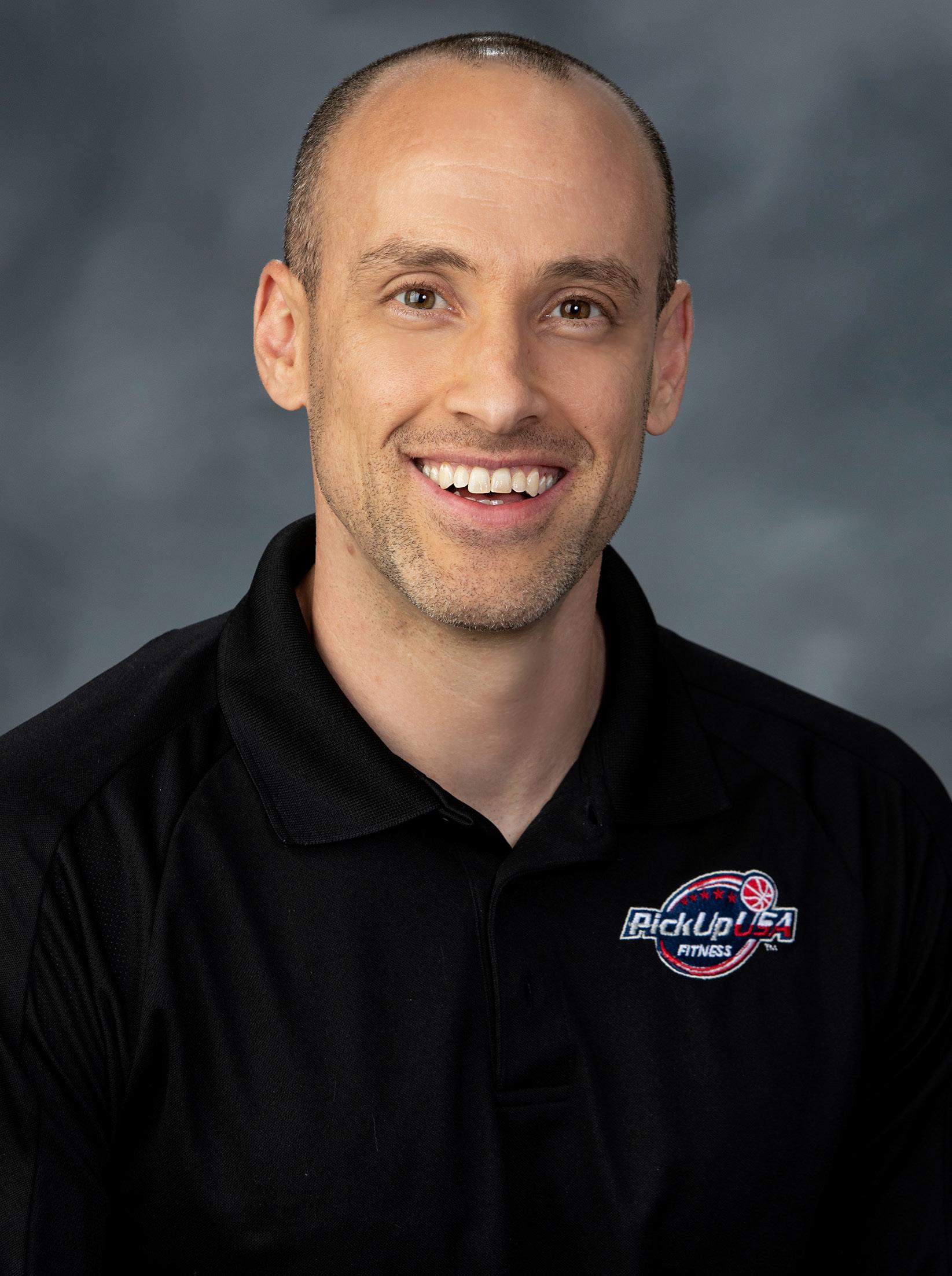
From working at restaurants as a teenager to beginning a career in banking to finally taking the plunge into entrepreneurship, Jordan Meinster’s (CEO & Founder, PickUp USA Fitness) journey is nothing short of inspiring.
From a young age, Jordan was always a hard worker. Even as a teenager, he worked full-time at Jiffy Lube, in restaurants, and as a window washer. Unlike his peers, Jordan made his way to college by paying for his own tuition fees. Later, after completing his MBA, he spent about six years working at reputed banks. At that time, entrepreneurship never crossed his
mind. What he envisioned for himself was climbing the corporate ladder somewhere. But as they say, never say never; ten years ago, Jordan quit his job in banking and decided to pursue an idea that he had been thinking and working over since his freshman year.
In October 2011, Jordan founded PickUp USA Fitness, the first and only basketballfocused fitness club concept operating in the US. However, the journey between realizing his dream and founding it wasn’t a cakewalk.
To get PickUp USA’s first club off the ground, Jordan had to get creative with
his financing. This took a lot of time and persistence. But, once he secured funding, he had a hard time leasing space for his venture. Landlords weren’t ready to lease their facility to an undercapitalized start-up entrepreneur who had no prior experience in operating a gym. Rejections came and went. Sometimes, Jordan thought that his dream would not turn into reality.


“I stayed the course, though, and eventually, in May of 2022, I signed a lease on our first location in Irwindale, CA, and we were in business a month later,” says Jordan.
PickUp USA’s slogan and mission statement are the same: A Better Way to Play. From the beginning, Jordan’s objective was to provide a better basketball experience. With his team, he has stayed true to it by adding numerous service offerings for the members and guests of the clubs.
“Initially, we started as a gym that runs officiated pickup basketball games with referees. Now, we are a full-service basketball focusedfitness club that offers basketball games, basketball tournaments, group and private basketball training, youth development leagues, full weight, cardio rooms, and a lot more,” mentions Jordan. Today, with a myriad of annual participants, PickUp USA is shaping the future of basketball and delivering an unparalleled gym experience to its customers.
In October 2011, Jordan founded PickUp USA Fitness, the first and only basketballfocused fitness club concept operating in the US

As the CEO & Founder of PickUp USA, Jordan fulfills two key responsibilities. The first one includes overseeing PickUp USA’s corporate team to ensure they are growing the company, supporting the franchisees, promoting the brand, and taking care of their customers nationwide.
His second responsibility is to be in constant touch with all the franchise owners of PickUp USA Fitness Clubs, whom he
considers his business partners. Being the supportive leader he is, Jordan is either communicating with them via phone or visiting them on-site across the country. Since he owns and operates PickUp USA locations himself, Jordan wants to be in the trenches with the franchise owners through the good and bad times. “They work incredibly hard to grow our brand, and it’s our job to support them and provide them the resources to help them succeed,” states Jordan.
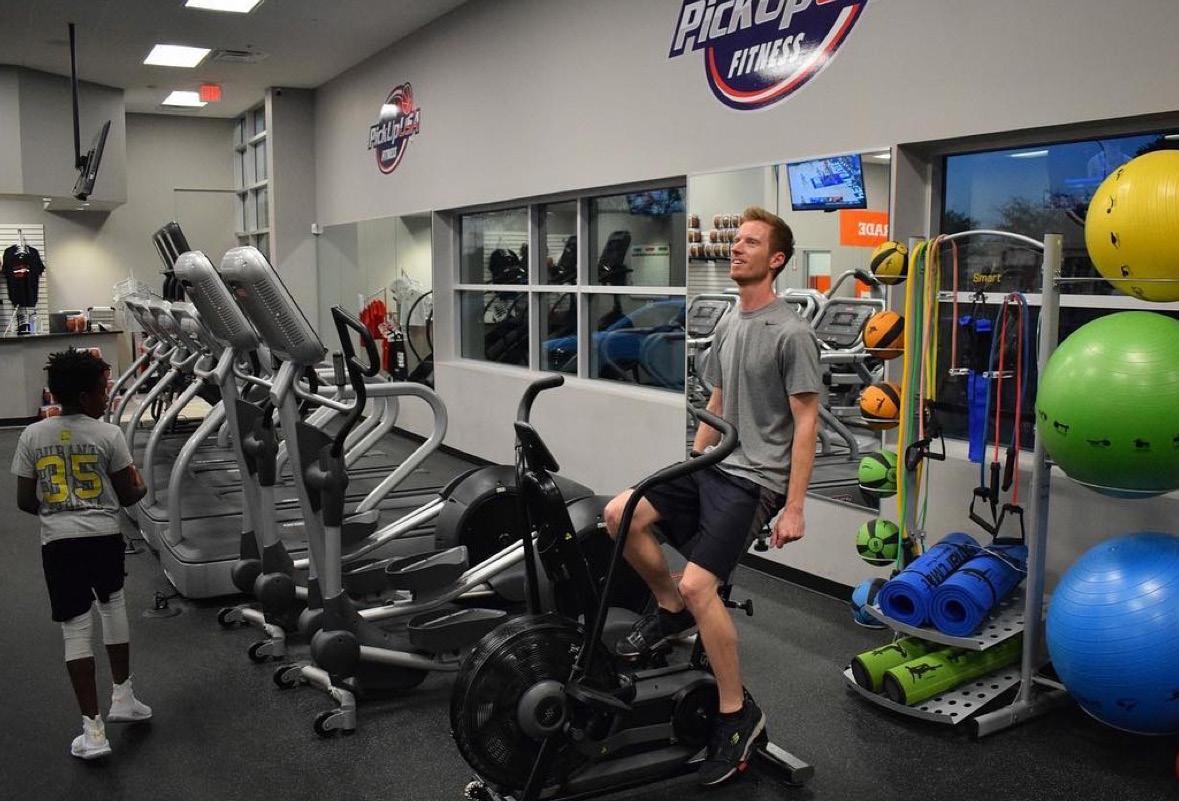
Jordan considers mistakes and missteps as a constant part of growing a business. He says, “I make mistakes all the time. But you learn from

them.” Mistakes didn’t stop him in any way. Instead, Jordan and his team made every ‘failure’ turn into a learning moment that helped them revise systems and create a better customer experience.
This is why people chose to franchise PickUp USA Fitness Club. “We have ten years’ worth of mistakes that we have made, and we provide our franchisees with training and a playbook to ensure that they don’t have to go through the learning curve that we did,” shares the wise CEO of PickUp USA.

“Getting our first location opened was a massive milestone,” shares Jordan. Taking an idea and turning it into a legitimate business serving customers is a huge accomplishment for him. Opening PickUp USA’s first franchise location in the following years was another big achievement for him. This was special because Jordan and his team had spent five years working out the flaws in their
Jordan considers mistakes and missteps as a constant part of growing a business. He says, “I make mistakes all the time. But you learn from them.”
operating model at the original location into a scalable concept.
“We have always been very deliberate about our growth plans. And so, opening multiple clubs in several markets is our latest accomplishment that we feel good about,” asserts Jordan with great pride.
At PickUp USA, Mondays are devoted to team meetings and work updates. “I meet with the whole team first thing in the morning, and then meet with each department throughout the rest of the day,” shares the CEO of PickUp USA. Jordan further explains that it is a great way to kick start the week and ensure everyone on the team is rowing in the same direction.
Likewise, Jordan’s schedule is jam-packed throughout the week. From site selections to identifying facilities to negotiating leases to targeting the club launches, he is completely involved in the entire process with the new franchise owners. He also checks in with his

exiting team of franchisees to know about how they are doing and if they need any assistance from his team in further growing their business.
During turbulent times, ‘this too shall pass’ is Jordan’s mantra for dealing with pressure and anxiety. He opines that when things are stressful, it is always a temporary situation that will be resolved through hard work and diligence.
As for unplugging from work, Jordan tries to take out a dedicated day each weekend where he likes to explore the outdoors and stay away from his gadgets. He also enjoys playing basketball and working out at PickUp USA’s gym daily. “The nice thing about my work travel is that every city I go to has a PickUp USA, so I don’t have any excuse for skipping the gym,” says Jordan with a grin.
The CEO & Franchise Owner of PickUp USA Fitness Clubs shares that it is a gratifying feeling to own and run one’s business. However, it comes with a price. It takes hours of hard work to
achieve your goals and great perseverance to deal with hardships. Therefore, Jordan recommends aspiring entrepreneurs to prepare their mindset for the same right at the beginning.
“As a franchisor, my team works to ensure that our franchise owners always have a support system. This allows them to be in business for themselves but not themselves. Even though they still have to put in the work, they have a whole team on the corporate side working for them seven days a week,” says Jordan.
At the onset of the COVID-19 pandemic, PickUp USA had to suspend its operations in all locations. From a franchise owner’s perspective, it was a nightmare. Countless thoughts were going through Jordan’s mind. How long would this last, and would the customers return when it reopens?
Fortunately, the turbulent times didn’t last very long. “Our clubs started reopening in May of 2020, and not only did the customers come back, but we were also immediately outperforming our pre-pandemic numbers,” reveals Jordan. The demand for basketball was basically the same pre and post-COVID. Still, many basketball gyms didn’t survive, so PickUp USA and its franchise owners benefited from having less supply in the market of basketball services.
“2020 turned into our best year on record. 2021 beat 2020. And year to date in 2022, we are pacing way ahead of 2021 and on our way to another record-setting year,” excitedly adds Jordan. He credits his franchise owners for how efficiently and calmly they navigated through the pandemic storm. “Although we provided guidance, resources, and 24/7 support, the franchise owners put in the real work to turn a crisis into a major opportunity,” continues Jordan.
Today, consumers all over the country are very eager to see a PickUp USA open in their communities, so Jordan and his team are doing their best to keep up with the demand
Today, consumers all over the country are very eager to see a PickUp USA open in their communities, so Jordan and his team are doing their best to keep up with the demand. To make this happen, they are taking time to select the new franchise owners and locations that would amplify PickUp USA’s client base.
“We currently have nine clubs under construction, so we are busy working day and night to launch these new locations. Additionally, we are also rolling out several new youth basketball services, keeping our team busy as we service a ton of demand from the youth market at our clubs,” reveals Jordan. And so, PickUp USA as a franchising brand is at an exciting point of growth, and Jordan loves every bit of it.
With 25 years of entrepreneurship, operations, sustainability and technology experience, Andrea brings a hands-on approach to partnering with investors, corporate boards, management, to create accelerated returns, resilient investment, and market leadership. Andrea Specializes in Resilience, Investment Promotion, and Women Entrepreneurship. Andrea was the Risk Management Coordinator for the World Bank in the Middle East for 8 years. Andrea continues to advise International Financial Institutions, and entrepreneurs on clean tech, sustainability, impact investments. Andrea is a Science and Foreign Policy Graduate from Georgetown University and has a bachelor’s degree in philosophy and Foreign Languages from Bologna University.
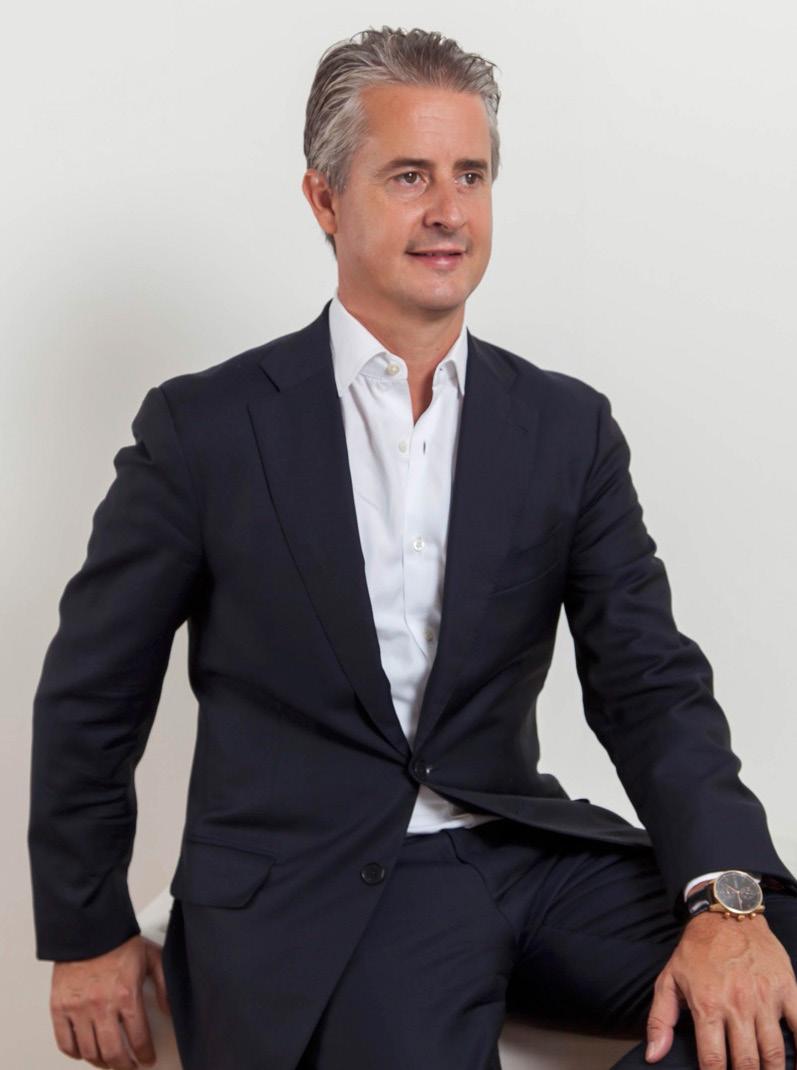
Sustainable business and ESG investment have become the norm since 2020. Large corporations are all now issuing sustainability reports and most global companies are integrating Net-Zero into their business models. In 2022 investment in ESG accelerated across all industries, and according to Bloomberg, sustainability assets under management (AUM) in 2023 reached $38 trillion. Bloomberg anticipates that ESG AUM will reach $50 trillion by 2025. This means that roughly every three dollars
invested, one will be invested in sustainability. To further demonstrate the shifting investment trend, it is remarkable to check what Black Rock’s CEO Larry Fink said in 2021 in his investment letter to shareholders “There is no company whose business model won’t be profoundly affected by the transition to a net zero economy…companies not quickly preparing themselves will see their businesses and valuations suffer”. This essentially means that climate risk is becoming as valuable as investment risk and investors are acting accordingly.
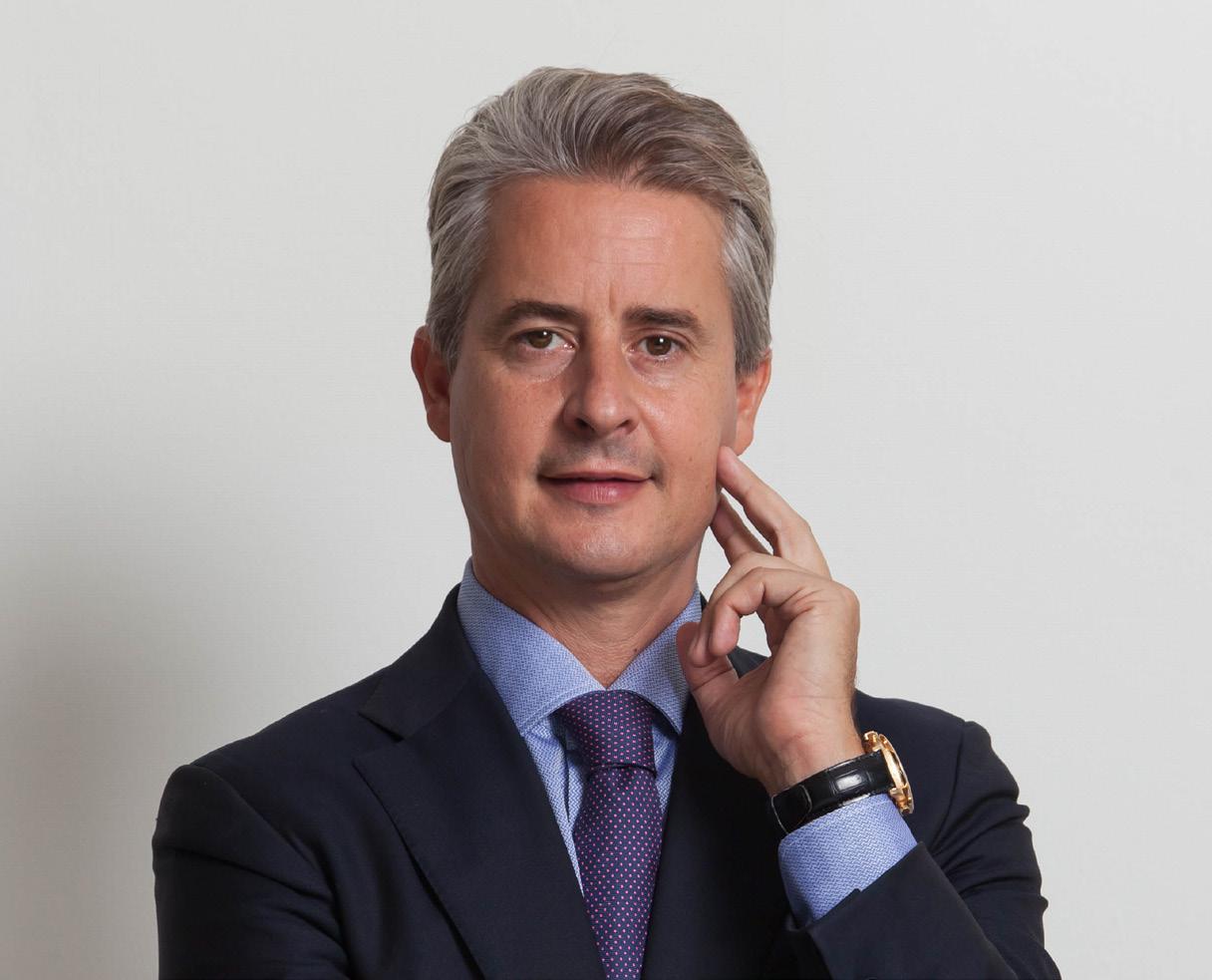
There’s no part of the economy untouched by sustainable innovation and investment. This includes the proliferation of green or climate tech early-stage ventures. In recent years, some of the fastest growing companies are climate tech, including plant-based proteins, renewable energy, low-carbon steel, green concrete and coal, and electric batteries. Climate tech accounted for more than one quarter of all venture dollars invested in 2022, according to recent data analyzed by PwC. In terms of the highest valued billion-dollar companies, according to HolonIQ (an industry leader), as of January 2023, there are 83 Climate Tech Unicorns around the world for a total value of $180 billion. This is an impressive growth compared to 2022 when we had only 44 Climate Tech companies valued at 1 $ billion or more. Despite the market challenge and recent crisis, Green Unicorn will continue to scale and create value. They will likely continue to reach unicorn status much faster that the startup in other sectors as witnessed recently. Based on my analysis, green startups have taken an average of 4 years to reach Unicorn status (the billion-dollar valuation), as opposed to the 7 years for startup in more conventional sectors.
While there continues to be momentum around sustainability start up investment, higher interest rates could stall investment flows in riskier earlystage companies. As money have becomes more expensive throughout 2022 (with 7 interest rates raise in the US alone), early-stage projects may not be able to raise capital to fuel their growth as investors become more risk adverse and selective. There are in fact signs that investors are seeking
opportunities with higher credit worthiness and more experienced executives. Early-stage disrupters will have to adjust to the new market constraints and must sacrifice higher valuation and give away more equity to attract investors with robust liquidity profiles.
Investors and entrepreneurs should also take note of the raising carbon prices. Recent Net-Zero legislation and Global Climate Summits COP26 and COP27 (that respectively took place in the UK in 2021 and in Egypt in 2022) are securing carbon trading partnership and leading to higher carbon pricing. Furthermore, most countries have strong Net-Zero commitment by 2050. The European Union, which is ahead of the game, reached a deal in April 2021 to reduce greenhouse gases 55% by 2030 compared with 1990 levels, and to reach net-zero emissions by 2050. Carbon prices more than doubled since the approval of this legislation. Changes in the carbon market will affect every segment of the economy, increasing the price of everything from electricity to food and gasoline. Higher carbon prices will force companies to adopt cleaner technologies and decarbonize their operations. As carbon prices rise, and lowemissions technologies become more efficient and affordable, we will continue to see an increase investment in climate tech, and more companies will participate in the carbon market to trade their decarbonization efforts.
The Biden Administration Inflation Reduction Act is the largest climate investment package ever approved by any country and it is changing climate tech investment forever. The nearly
$370 billion climate and renewable energy package is streamlining carbon reduction across the board while accelerating climate investment globally. The bill aims to reduce greenhouse gas emissions by electrifying activities that are based carbon intensive fossil fuels and generating more electricity from renewable sources such as solar, wind and green hydrogen. This law is essentially
fires or megadroughts became more frequent and intense, there is stronger evidence that climate events are linked to human carbon emission. Based on the data available from NOOA (National Oceanographic and Atmospheric Administration), the US may have been losing 1-2 % of GDP per year due to climate induced disasters over the last decade. This has acted as a catalyzer for climate mitigation and adaptation investments. Just to keep temperature increase at 1.5C compared to pre-industrial times (and thus limit the risk of catastrophic climate events), almost $30 trillion dollars needs to be invested by 2050 globally. This equals roughly 4 percent of annual GDP (in 2021 money). While the price tag for adapting and mitigation climate risk is high, the alternative is much higher. According to the Reinsurance Group Swiss-Re climate could cause $23 trillion in global GDP losses corresponding to 11 to 14 per cent off global economic output per year. With these massive losses, there are massive opportunities and financial markets, and entrepreneurs are going after this unprecedented market opportunity.
sending a powerful message to the market and acting as a force multiplier of green investments across all segments of the economy.

Another element accelerating clean tech and sustainability investment, is the high cost of climate change. As disasters such as floods, forest
While ESG and clean tech investments are very promising, the market is still demanding more standardized ESG metrics and more regulation coordination to ensure high quality tools, harmonized carbon pricing, and effective resilience investment strategies. On the green start up front, we will continue to experience accelerated capital inflows toward these types of deals, even though doubts persist about the unproved economical profitability of green-tech startups. Rest assured though, we are in a strong market for sustainability investment and the regulators will continue to provide the market signals that will allow climate investment to thrive.
Based on my analysis, green startups have taken an average of 4 years to reach Unicorn status (the billiondollar valuation), as opposed to the 7 years for startup in more conventional sectors

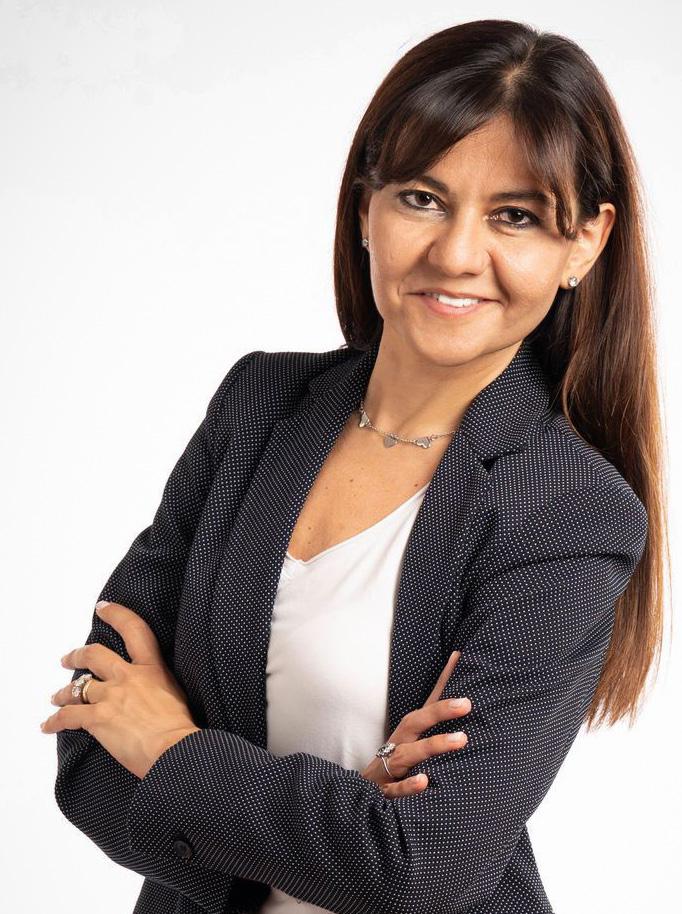 Maria Francesca Aceti Chief Executive Officer, Deltha Pharma
Maria Francesca Aceti Chief Executive Officer, Deltha Pharma
Most individuals fear the thought of their business failing. One such business that was on the verge of shutting down was Deltha Pharma, a pharmaceutical company developing and marketing high-quality food supplements. It was facing an unavoidable debt crisis. Helping change the business’s inevitability of failure into a raging success was Maria Francesca Aceti, Chief Executive Officer, Deltha Pharma. “My father, who was a doctor, had invested some money in this company. Unfortunately, soon after its foundation, it went near bankruptcy. The old CEO had given up, so I tried to save it to minimize his loss, against everyone’s advice,” reveals Maria.
A chemical engineer by profession, Maria embarked upon the journey of CEO of Deltha
Pharma at the tender age of 28. She was working at ENEA, a very important research centre in Italy, on a project for the production of electric energy by gasification of coal. What started as a commitment to relaunch the company has now become a drive to attain market dominance and recognition as a leading pharmaceutical company.
Maria took multi-pronged strategic approaches to revive the brand and get it to the marketleading position it enjoys today. She commenced the journey of saving the company from its downfall by earning the trust of her sales agents, customers, employees, and all KGLs. It was quite the ordeal, but she overcame it with hard work and by making a few pivotal changes to the existing business model. “One of the first
things I needed to improve was the trust of my customers, suppliers, and employees. I could achieve that. Consequently, it allowed me to save the company,” opines Maria.

Procurement of raw materials was made by investing in the newest and best quality raw materials, thus making very high-quality products. The next step Maria took was creating a new sales network and going digital with the rest of the world, making e-commerce and onboarding her topmost priority. All these small steps taken helped her manage to get the company back up on its feet and raise its fortunes within a year.
Established in Rome in 2009, Maria took over the reins of Deltha Pharma 11 years ago and has

made ‘quality, safety and efficacy’ her motto that she firmly abides by. She believes that for the success of any organisation, a team of dedicated experts is one of the key elements. Maria has assembled a young and dynamic team of various professional figures, engaged in the continuous search for new raw materials and in developing natural products that guarantee the highest levels of quality, safety and efficacy. All processes are carried out to comply with firm ethical and moral principles, and therefore the products are beneficial for the well-being of the users.
At Deltha Pharma, Maria does not compromise the quality of raw materials, which are exclusively natural and sourced from Italian companies with quality certification. The extraction of the active ingredients is carried out with innovative techniques that keep the structures of the

molecules unaltered. All production batches are subjected to strict controls and analysed for the presence of allergens, bacteria, and fungi by external companies. The manufacture of the finished product is executed in the latest generation fully automated production plant, GMP and HACCP certified, according to standardised and pre-established procedures, carrying out all quality controls regularly certified by competent personnel.
In Italy, Deltha Pharma works in partnership with universities and research centres to formulate and validate products. It is affiliated with the most important company in the category, Federsalus. The company is also associated
At Deltha Pharma, Maria does not compromise the quality of raw materials, which are exclusively natural and sourced from Italian companies with quality certification
with AICE for foreign trade. “We work to the highest standards of quality and hygiene. We got HACCP; ISO 9001 certifications for quality and ISO 14001 for environmental sustainability,” adds Maria. In the relentless pursuit of prime customer delight, Maria, in tandem with a well-renowned University in Italy, Università Cattolica del Sacro Cuore, formulated a very

special probiotic in 2019. This novel probiotic has been patented by the university, with Deltha Pharma possessing the exclusive marketing license for the whole world.
Another lucrative move made by Maria in reviving the brand to its former glorious self was
to develop the company's digital marketing and digitalisation strategy. She has been actively working for several months on digitising all company departments, from the warehouse and logistics operation to the administration, from managing the sales network to the marketing campaigns. Maria plans to accomplish this by interfacing different ERPs, CRM and


marketing automation software with each other and government databases using blockchain technology. “We onboarded the most important e-commerce platforms in the world, both B2B and B2C, and became one of the best dealers on Amazon and Alibaba.com. In 2022, Alibaba.com wanted to showcase my company and me as a successful case study. I was one of the speakers on the SMEs day 2022 of the International Trade Centre,” Maria proudly shares.
Another strategy adopted was setting sights on non-manufacturing countries with the successful delivery of several digital campaigns to forge international partnerships. The company signed a distribution agreement with one of the biggest Chinese companies in 2021. Another exciting milestone achieved is the organisation's new headquarters, a modern space leveraged to promote creativity and productivity. Maria proclaims, “It is an open
space made of glass and resin where you can really enjoy spending your working day. I care a lot about my employees. In fact, we implement a system of welfare that includes medical insurance, and we usually close at about 4.40 p.m. With this initiative, people can stay with their children and family; you only need to be well organized!”
It was through her resilience and team effort that Deltha Pharma was equipped to face the Coronavirus pandemic. The organisation employed a proactive approach and imported masks and permeated the market with vitamin D and C food supplements. These moves led to revenue growth of 30 per cent in 2020.
Maria goes on to tell us how this journey has been a learning process for her as well. During her tenure, she completely changed her mindset. She gained the valuable understanding that she can fail, put in the hard work, and improve her skills. It ultimately led to helping her save Deltha Pharma through economics knowledge, patience, problem-solving, teamwork, and responsibility. “I build relationships with respect and integrity with my team and always keep my mind open to changes. I am open to receiving advice since I think that I can learn from anybody. In a society as fast as ours, I strongly
believe that we need to update our knowledge and be a continuous learners,” adds Maria.
As Deltha Pharma embarks upon its journey into the future, Maria reveals the core areas of interest that she intends to pursue: digitisation, eco-sustainability and exports. She explains, “I have just decided to apply for an ESG rating. We are committed to achieving fully sustainable management. This path is based on maximum commitment and transparency to implement an environmental sustainability strategy that encompasses every aspect of the company’s operations."
Today, Deltha Pharma is recognised as one of the leading pharmaceutical companies facilitating consumers with superior quality food supplements. Currently, the organisation boasts 14 products belonging to its portfolio with an extensive national presence catering to over a thousand pharmaceutical wholesalers, cooperatives, and pharmacies. Additionally, the organisation has established partners in many countries in Europe, Asia, and Africa. The company envisions launching a new product for its liver line called ‘Epatoril Pro’. In conjunction with this, the team is working on releasing a new line of products made as gummies for women and children by next year. The product will be marketed as ‘Penelope’ after Maria’s daughter.






Dr. Anthony Hamlet is an experienced educator with over 28 years in the field. He has worked in affluent and impoverished schools & districts and has a proven track record of turning around underperforming schools and school districts. Dr. Hamlet has served in various roles, including case manager, teacher, principal, and district administrator, earning five principal of the year awards, and being a two-time finalist for the Green Garner "Urban Superintendent of the Year" Award. As superintendent of Pittsburgh Public Schools, he made ground-breaking changes that helped students do better in school and led to a huge drop in the number of students who were suspended. Dr. Hamlet holds degrees from the University of Miami and Nova Southeastern University and has completed continuing education programs at Harvard University and Howard University. Before his educational career, as a former NFL player, he played for the Miami Hurricanes and was part of three national championship teams. He is currently the President & CEO of CSI Strategies LLC, a university professor and educational leadership, change, and transformation consultant.
 Dr. Anthony Hamlet
Dr. Anthony Hamlet
Creating a student outcomes-focused learning culture is essential to promoting student success and continuous improvement in schools. As educational leaders, it is our responsibility to cultivate an environment that prioritizes high expectations, equity, access, and adequacy to ensure all students have the support they need to achieve their full potential. In this article, we will explore the critical elements of a student outcomes-focused learning culture, the role of educational leaders in nurturing it, and the tools and strategies available to create such an environment.
One of the critical elements of a student outcomes-focused learning culture is a set of core beliefs in ability and achievement, efficacy and effort, and power and control. These beliefs manifest in structures within the physical environment, group relationships, policies, and procedures. The learning climate of a school is essential to developing a student outcomes-focused culture. A positive learning climate, characterized by attitudes, behaviors, and practices that promote student success, is key. Educational leaders must create an environment that emphasizes the importance of high expectations, equity, access, and adequacy, promoting a culture of continuous improvement and student success.
Leadership plays a critical role in nurturing a culture of continuous improvement and school success. They must prioritize high standards, student-centered approaches, and focus on equity, access, and adequacy. A "backward design" approach is essential, envisioning desired student outcomes and designing structures, policies, and practices that align
with these goals. Leaders must establish clear expectations for performance and behavior, emphasizing the importance of effort and achievement. Fostering a collaborative environment, promoting equity, access, and adequacy, and empowering teachers and staff are also essential.
Effective communication is vital for fostering a student outcomes-focused culture. Leaders must communicate expectations and goals to all stakeholders, ensuring everyone understands their roles and responsibilities in achieving these objectives. Collaboration and teamwork among teachers, administrators, and support staff are also essential for ensuring a shared commitment to improving student outcomes. Leaders must invest in ongoing professional development to maintain a focus on student outcomes and continuously improve instructional practices.
The classic Rosenthal study demonstrated the power of beliefs in influencing student success. Leaders must foster positive beliefs about students' abilities and potential to impact their performance and achievement positively. Encouraging a growth mindset among educators and students and promoting culturally responsive teaching practices are critical components of this effort.
Structures that embody beliefs must be identified and analyzed to create new experiences that lead to changes in assumptions and the development of new beliefs. Implementing new structures, such as academic interventions, social-emotional learning programs, and wraparound services, can help address the diverse needs of students and foster a student outcomes-focused learning
culture. Educational leaders must also prioritize instructional models that align with their vision and goals for student outcomes. This may involve adopting project-based learning, inquiry-based learning, or other studentcentered approaches that promote critical thinking, problem-solving, and collaboration.
Assessment practices used in a school must align with the desired student outcomes. Educational leaders should advocate for the use of authentic assessments that measure students' skills, knowledge, and growth in meaningful and relevant ways. Establishing comprehensive support systems, such as academic interventions, social-emotional learning programs, and wraparound services, can help address the diverse needs of students and foster a student outcomes-focused learning culture.
Creating a student outcomes-focused learning culture is a challenging task for educational leaders. However, with persistence, dedication, and the implementation of effective leadership strategies, leaders can create a nurturing environment that supports improvement, high expectations, and the wellbeing of students. Leaders must have a deep understanding of their school's culture, values, and beliefs to implement changes successfully. Empowering teachers and staff by providing ample support for professional development, shared decision-making, and distributed leadership is critical to creating a sense of ownership and responsibility among educators. Continuously assessing and adapting policies and practices is critical to promote continuous improvement and achieve desired
Educational leaders should advocate for the use of authentic assessments that measure students' skills, knowledge, and growth in meaningful and relevant ways
student outcomes. Leaders must regularly evaluate the effectiveness of structures, policies, and practices, making adjustments as necessary to ensure they align with the desired student outcomes.
One strategy for continuous improvement is the use of data-driven decision-making. Educational leaders can use data to identify areas for improvement, set goals, and track progress towards achieving them. This approach enables leaders to make informed decisions and evaluate the effectiveness of policies and practices in real-time.
Another essential strategy for continuous improvement is teacher collaboration. Teachers can collaborate to share best practices, analyze student data, and develop new approaches to instruction. By working together, teachers can support one another and continuously improve their teaching practices to benefit their students.
In conclusion, creating a student outcomesfocused learning culture is a complex and challenging task for educational leaders. However, by prioritizing high expectations, equity, access, and adequacy, leaders can foster a culture of continuous improvement and student success. The critical elements of this culture include core beliefs in ability and achievement, efficacy and effort, and power and control. Leaders must employ effective leadership strategies such as fostering a collaborative environment, promoting equity, access, and adequacy, and empowering teachers and staff. Continuous assessment and adaptation of policies and practices are also critical to promote continuous improvement and achieve desired student outcomes. By implementing these strategies and working tirelessly to support their students, educational leaders can create a nurturing environment that supports improvement, high expectations, and the well-being of students.
Leaders must establish clear expectations for performance and behavior, emphasizing the importance of effort and achievement.
Fostering a collaborative environment, promoting equity, access, and adequacy, and empowering teachers and staff are also essential
 Sharon Anderson Founder & CEO, KCG Consulting Services (KCG)
Sharon Anderson Founder & CEO, KCG Consulting Services (KCG)
Every individual is blessed with a unique set of talents and skills. But, only a handful of those is ready to utilize them for the betterment of society. Known for her philanthropic nature, outof-the-box thinking, solution-oriented approach, and optimistic attitude, Sharon Anderson, the Founder & CEO of KCG Consulting Services (KCG), is one such role model to be emulated.
Sharon holds a BA degree from Tufts University in International Relations and a Juris Doctorate from the prestigious Georgetown Law School. From a very young age, she had a passion for serving the public. This is why Sharon began her career as a public defender and started representing individuals who couldn’t afford their own legal aid. Later on, with experience and expertise, she became
recognized as a global thought leader in civility and the law. She is also an Executive Pastor at a major church in Washington, DC.
Sharon’s benevolent contribution to the legal profession has earned her numerous promotions, awards, and accolades. Among those, her work for the Mayor of the District of Columbia at the Office of the Attorney General as the Senior Deputy for Public Protection and Enforcement holds a special place in her heart. She was awarded the coveted District of Columbia Mayor’s TrailBlazer recognition during the Williams’ Administration and was appointed the Co-Chair of the Prince George County Maryland Faith Based Advisory Board in 2020.
In 2021, Sharon was acknowledged as the Special Advisor to the Global Board Chair of OPAD- and recognized in the 2021 World Book of Greatness in the UK. Sharing one of her proud moments out of many, Sharon says, “I am extremely proud of my current appointment to the Executive Board of the International Congress on Global Communications. Our goal is to create a global platform to discuss and innovate solutions to the sustainable goals worldwide.”
She is also a published author on civility and the law. Through her current book “Emotional Civility-The New Standard for Global Success,” she encourages the world to understand the importance of civility and keeping it on the societal forefront. Sharon shares, “I have dedicated this moment in my career to examining the abandoned value of civil interaction; and call us to action to apply civility as our standard to bring success, peace, and safety to our homes, communities, and nations.” This successful author is planning on three more literary works on civility in the coming days.
“Over the last decade, I have focused my career on building civility in a society that all too often seems tilted towards uncivil speech and actions, and through research and experience in developing a proven framework for cultivating a safe and productive culture of civility and respect in all spheres of our daily lives,” asserts Sharon. Founded in 2018, KCG Consulting Services is unique in the business development industry because it is client-centered and tailors its services to meet the needs of each client regardless of size and revenue/worth.
Moreover, when the COVID-19 pandemic caught the world off guard, people, much fewer businesses, were unprepared and overwhelmed. To survive in such unprecedented times, small to mid-sized and large businesses had to quickly shift gears and become technologydriven. But this is not as easy as it sounds. Leaders from all industrial landscapes were expected to bring innovative plans and digital strategies to manage their working from home employees, supervise staff, and bring financial outcomes to the table.
This was the crucial and most functional time when a consulting firm dedicated to helping businesses with strategic planning, training, and funding, such as KCG, came as an answer to their prayers. Reminiscing those days, Sharon says, “We became functional during the pandemic to be an answer for businesses and business leaders who needed help to manage the transitions created by the pandemic.” She also strongly feels that communication, transparency, and managing expectations are the key traits for businesses and business leaders. Hence, KCG, led by Sharon, made every effort to practice what they preach to their clients.
Each one of us makes mistakes. It is, however, solely up to us how much we learn from them and never walk on the same path again. Similarly, in the early days, Sharon made a few errors. One of them was undervaluing her work. The effort, time, and resources one puts in are irreplaceable, whether for charity or paid clients. In many charitable cases, people tend to not appreciate the work or the efforts. Hence, one of the most important lessons
she learned was to balance the donated work with the paid clients.
Another crucial lesson she learned was the problems that can develop from a lack of communication. Irrespective of the amount of pressure, ongoing projects, deadlines, or numerous meetings, communicating with the clients is imperative. They must always be kept informed about their work status. A simple

Founded in 2018, KCG Consulting Services is unique in the business development industry because it is clientcentered and tailors its services to meet the needs of each client regardless of size and revenue/worth
mail or an update to keep them in the loop goes a long way. Likewise, Sharon believes that not every client is suitable for their business. One must learn the art of saying no and also understand what may prove to be good and fatal in the long term. Finances and money should not be the sole driving force. Hence, leaders and managers should always be in the mode of learning.
While looking back at her journey as a successful leader, Sharon explains, “The need for my voice, knowledge, and expertise around the world has come to a full circle. I am now being asked to comment, contract, and manage globally.”

Just like the arrival of the pandemic, its post scenario is bound to change unforeseeably. Leaders and organizations who can sight this change will survive and succeed, whereas businesses that continue to operate as before are bound to crash and burn.
In the case of KCG Consulting Service, Sharon feels that the company will continue to be the voice for civil communication and a business development, management, and training firm. Furthermore, she asserts, “My vision is to become one of the leading business development firms in the world, known for the ability to craft creative solutions to complex problems, and most importantly train all levels of employees and leadership so that implementation is seamless and change is sustainable.”
Sharon wants all business leaders and owners to stay encouraged and seek out collaborations and partnerships whenever possible. During the hour of need, one must never be afraid to ask for assistance. Also, mentorships are helpful when one is navigating change. Finally, she adds, “God is still in the miracle-working business. If you are struggling right now, remember, one call, one partner, one connection can change the trajectory of your life. Stay the course.”

Nicolas Babin is an agile Senior Executive with over 35 years of international, multilingual, and multicultural experience. He is a Key Opinion Leader and Influencer for many international brands as well as Start-ups and Scale-ups. He has had management experience in both the East and West, setting up and managing international teams in Europe, US, and Japan. Nicolas has started and developed over 26 companies in the US, UK, and France. He has been involved with AI since 1996, launching the robotic division for Sony Europe and has received many distinguished awards. He has had two IPO experiences on the Nasdaq and NYSE and many Fundraising experiences. He is a sought-after international keynote speaker on innovation, e-health, digital and robotics. He is also the author of the award-winning book called ‘The talking dog’ – immersion in new technologies. He has sat and sits on several boards in the US, Europe, and Japan. Currently, Nicolas is the President at Babin Business Consulting.
 Nicolas Babin
Nicolas Babin
Alot has been written about the Metaverse since Marc Zuckerberg announced his new vision for the then named Facebook company. Today, I would like to explain more in detail about where it comes from, all markets involved and the transformation the latest web development (also known as web 3) is bringing.
As a definition, I looked at Wikipedia and found:
“In futurism and science fiction, the metaverse is a hypothetical iteration of the Internet as a single, universal and immersive virtual world that is facilitated by the use of virtual reality (VR) and augmented reality (AR) headsets. In colloquial use, a metaverse is a network of 3D virtual worlds focused on social connection.
The term "metaverse" originated in the 1992 science fiction novel Snow Crash as a portmanteau of "meta" and "universe." Metaverse development is often linked to advancing virtual reality technology due to increasing demands for immersion…”
The Metaverse is the combination of several “worlds” as I see it:
First out of the internet as we know it today, we can isolate all users connected thanks to phones (with 5G connections), tablets and PCs (with high connectivity such as fiber, Wifi 6…). It is true that experiencing the Metaverse requires fast access to servers with performant cloud services. But also, as we see happening, all new services come now as immersive applications/solutions.
The rising world for all types of realities such as Virtual Reality, Augmented Reality,
Mixed Reality, Extended Reality with VR headsets now being launched and available for the mass market.
The commerce world of the web 3 and the availability of blockchain technologies: This allows buying and selling things in a much easier and virtual way with NFTs (NonFungible Tokens).
Finally, the expansion of the social media world that will allow communication, exchange and promotion of services and assets.
To ensure success in the Metaverse, the above 4 worlds will be your environment, your sand pit if you would.
The Metaverse is happening now due to 2 factors:
All the technologies that make the 4 worlds mentioned above have become available to the general public. Moreover, many large companies in various fields such as social media, conventional media, Fintech, sports, retail and fashion industries have started to invest hundreds of millions of dollars in this “new” development.
It was tried before with the environment called second life that launched back in 2003. Second life did not have a chance to make it because the technologies were not mainstream and because we then lacked several elements (such as Blockchain and NFTs) as well as big companies investing large amounts of money to make it successful. Second life helps us to ensure we have learned from the past.
Today, brands see the benefits that the Metaverse can bring to the table. It not only offers an immersive world that gamification mechanics have been promoting for a long time to create engagement and loyalty, but it
also allows brands to reach new audiences. We now have Generation G (or Z) users coming to the market as customers and they expect new and immersive experiences. These users have been immersed in the internet and gaming for a long time now (since they can remember) and the rise of the Metaverse allows them to excel. They find several elements that make them comfortable. The fact that the Metaverse is always accessible; it is real-time with very low latency (hence the need for fast connections);
many people, businesses and objects can interact and operate at the same time (the link to social media is important here); it can be commercially or non-commercially focused; it is immersive and combines physical and digital environments (what we call the phygital world) and last but not least, it has an efficient economy (as I mentioned, you can buy, exchange, create, mint, own a variety of physical, digital solutions, services and assets).
Now that we understand better the whys and hows of the Metaverse, let’s have a look at the markets that are involved in this new world.
As I mentioned above, we see many companies getting involved and pouring large sums of money into the Metaverse. I am not going to name them all, but they are mainly in the following areas: Social Media, conventional Media, Fintech, Sports, Retail and Fashion industries. However, more markets will need to get involved as I believe we will see more and more applications coming to main stream market such as the luxury or art markets (as we see NFTs being minted for watches, paintings, photos…) but also the automotive market, the electronic market and any market where Extended Realities are being used across the value chain (from engineering to logistics, marketing, sales, support, communication….). The gaming market will benefit also from the rise of the Metaverse as it will allow easier ownership of virtual assets. It will be also the easiest entry point for a lot of people who have been gamers for years (like myself). My first Metaverse experience besides games was with Nikeland on Roblox (Nike).
The legal market will also need to evolve and transform itself. It will need to prepare
Today, brands see the benefits that the Metaverse can bring to the table. It not only offers an immersive world that gamification mechanics have been promoting for a long time to create engagement and loyalty, but it also allows brands to reach new audiences
contracts for the commerce side of the Metaverse, but it will also need to prepare itself and serve clients present in the Metaverse in a new and disruptive way.
The metaverse will allow us to create cities and check their efficiency in terms of traffic, energy, better living conditions and efficient governance. We will be able to live a virtual experience and understand the consequences of our actions before we move them to a concrete world. The concept of smart cities and digital twins will be enhanced and more efficient.
Finally, I would like to share a wider element to the Metaverse. I strongly believe that working in the Metaverse will ensure better collaboration, better learning and will definitely reshape the way we work in very disruptive but positive way. Thanks to Covid 19, we now have experienced the use of digital tools that allow us to be performant on different platforms (like Teams, Zoom, WhatsApp or Skype). The Metaverse will allow us with the
use of avatars to participate, vote, communicate in unsettling ways.
As a conclusion, I would like to focus on the issues that the Metaverse could bring if we are not careful. Cyber security will need to be tightened as with every new development, risks to personal data could be higher. The Metaverse is coming to life in a very efficient way because new technology allows it to, but let’s ensure we use all our knowledge in protecting ourselves as we move to a phygital world. As described above, legal teams will need to work and be ready to strengthen and prepare new legal documents that will protect their clients for this new environment.
My last message to you will be to start experiencing the Metaverse. You have platforms available like Roblox, Fortnite, The Sandbox and many others (like Horizon Worlds from Meta – ex Facebook or Mesh from Microsoft with integration of Teams and HoloLens headsets) and enjoy the ride.
The Metaverse is coming to life in a very efficient way because new technology allows it to, but let’s ensure we use all our knowledge in protecting ourselves as we move to a phygital world


